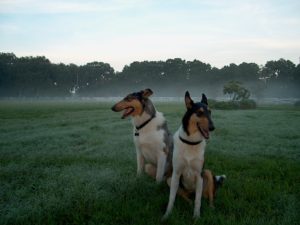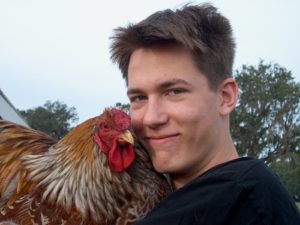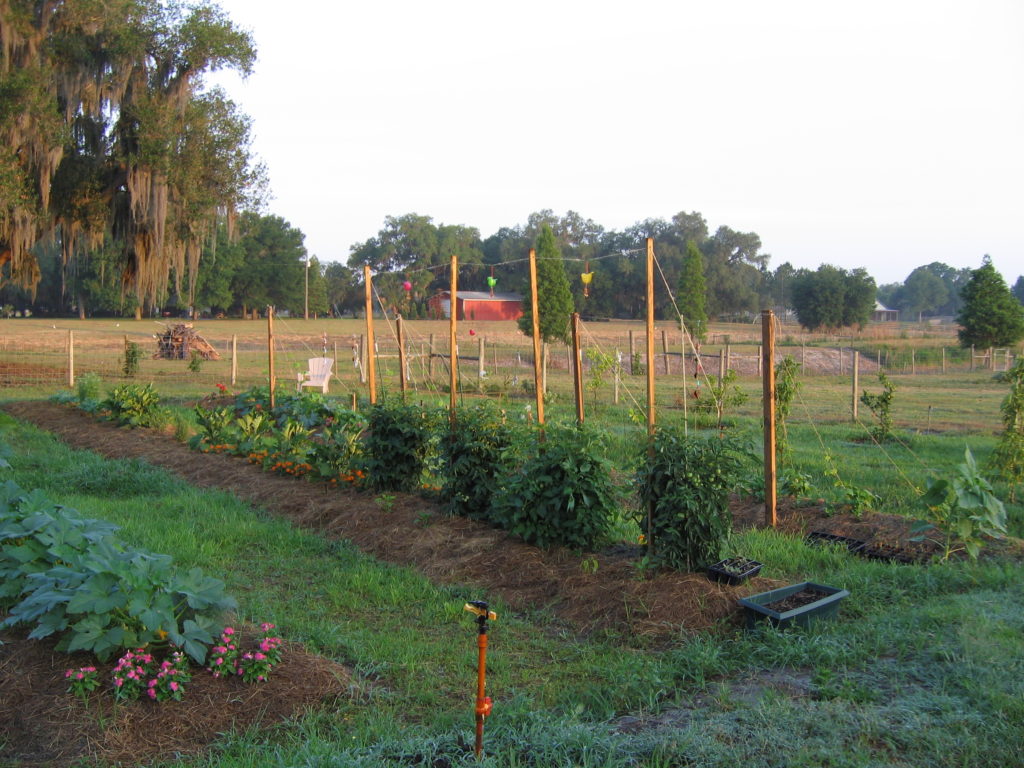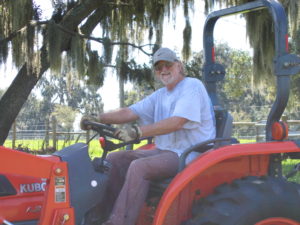Among my most vivid childhood dreams of what I might in the future want to do or become, one vision—inherited mostly from my paternal grandfather and great grandfather—was to have a farm. It was not to be grandiose, nothing like being part of what was then largely unknown as the future “agribusiness.” I wanted something sufficiently productive to provide for me and mine, with crops, gardens, a few cattle, perhaps a horse or two, and the usual chickens, ducks, and dogs.

From my earliest days, I loved more than anything else spending days in the woods. In my mind, I would gladly have lived in the woods. The one requirement my father had when finding us a house in our move from Greensboro, North Carolina, to Atlanta, Georgia, was that there had to be nearby woods. And he came through—there were woods behind us and less than a block away, woods galore, with creeks, cliffs, tall oaks for climbing, and smaller trees for riding down.
But the visits in my childhood and youth to Uncle Claiborne and Aunt Cynthia’s farm in Franklin, Tennessee, are still quite accessible in the storehouse of my most favorite recollections. I would try to help him milk the cows, and then ride with him to the local freezer locker where the milk of local farmers was stored. I would help him hoe his large garden where he raised the best tomatoes, corn, and okra I have ever tasted in my life.
It was a small farm, only twenty acres or so, and even then it was not sufficient to provide for their four children and put them through college. Aunt Cynthia taught Latin across the road at BGA (Battle Ground Academy) to make up the difference. But Uncle Claiborne and I were close, though he rarely said much. He was big, about 6’5,” and he would sometimes recall having played lineman for the University of Tennessee back in the day when the Tennessee and Vanderbilt game was a serious contention, and when the Hatcher boys were a force to be reckoned with.
But it was his hands that said as much as his words. They were large and thick, more like hams than hands. And his smile, when it came, would light up a room, and he did not laugh so much as he would chuckle or humph. I remember when I was at Vanderbilt, I travelled the twenty miles down the road to sit with him in the kitchen listening to the University of Mississippi play LSU during what is cited in Wikipedia as the famous Halloween run of Heisman Trophy winner Billy Cannon. That was in the fall of 1959, and while Uncle Claiborne rooted for the Ole Miss rebels, I was pleased that the LSU tigers had won the day.

Well, after college, and more college, and getting a job teaching, and then more college, and then getting a professorship, farming was neither an option nor much on my mind until January of 2004 when, after looking for a house big enough for my family, my dog, and my mother-in-law, my wife Lucia discover in her persistent search a dream-come-true house—an old ranch home on thirteen acres, but surrounded by six hundred acres of pasture land filled with cattle. And since my son James wanted more than anything to raise chickens, one our first endeavors was to build a first-class chicken coop, which stands to this day after having withstood five hurricanes.
And then came fences and more coops, and cattle, and a superb vegetable garden tended daily by my wife.


I helped with the small tractor (a Kubota B8200) we inherited from the previous owner, and then I purchased a larger Kubota 3130 with all the attachments necessary—a tiller for the garden, a box blade to smooth out the rougher terrain, a bush hog for trimming the pasture, a front loader for moving the dirt around, and front forks to lift the limbs from trees I rimmed with my prized chain saw.
A few years later when we no longer had the time to keep up the garden, we planted an orchard with fig trees, plum trees, apple trees, peach trees, orange trees, and two olive trees. Over time, they ended up requiring about as much work as the garden, and then a big freeze one winter killed off just about everything. They all ended up making a really beautiful fire.

Now, a few years later, after my having had both hips and both knees replaced, we have decided that all the animals could find a haven elsewhere, and we turned to growing hay. No more fences to keep mending. No more cows to watch over. No donkey or horse to feed or tend. Just nice, pleasant pasture, and once a year in the fall, a nearby neighbor in the business of selling hay, brings his equipment over to make rolls of hay, about a hundred or so. And that’s fine with me. Stated the way Clint Eastwood might say it, “Farming is a nice thing to imagine, but it’s damn hard work when you actually do it.”
